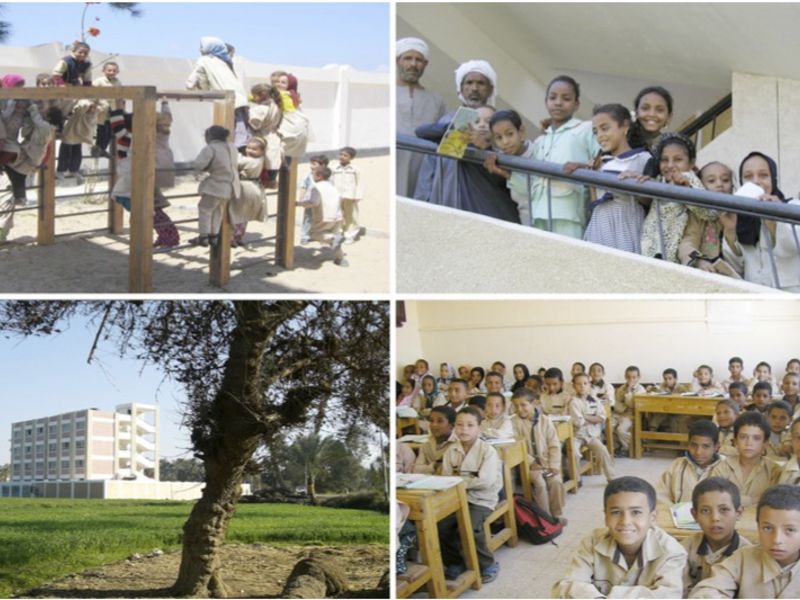Governorates Qena, Fayoum, Menia, Assiut:New and Improved Learning Environment – NILE
Disciplines
-
Buildings & Architecture
-
Urban Infrastructure & Utilities
Companies
Dorsch International Consultants
Client
Ministry of Education (MoE) and General Authority for Educational Buildings (GAEB)
Duration
From 2008 to 2014Project Activities
- Participatory selection and planning of programme schools
- Review of school designs and standards towards and individual design
- Elaboration of development and improvement plans
- Tendering and construction supervision
- Elaboration and implementation of operation and maintenance concepts
- Strengthening of community participation and stakeholder integration
- Capacity building & training
Contact
Dorsch International Consultants GmbH
München (Headquarters)
80687 München
Germany
Phone: +49 89 5797-0
Fax: +49 89 5797-800
E-Mail: info@dorsch.de
Description
The NILE programme continues the education enhancement programme introduced by the Ministry of Education (MoE) and the KfW Entwicklungsbank (KfW) in 1996 and furthermore planned in the context of the education reform in Egypt.
The four Governorates are situated in mainly rural areas of Upper Egypt and among the poorest Governorates in Egypt.
Investment measures consist of the construction, replacing, and rehabilitation of approximately 900 classrooms and some 80 schools, the provision of furniture and equipment as well as the assistance in the implementation of a sustainable funding and monitoring of maintenance systems.
The selection of districts and schools to be constructed or rehabilitated shall be based on a needs assessment according to defined socio-economic and educational criteria.
The review of school design and standards aims at the improvement of the learning environment, the increase of efficiency and quality and at the same time to reduce the construction costs.
In order to improve the sustainability of the investment measures, the complementary measures support the MoE in its decentralisation strategy.
The role of communities and stakeholders shall be strengthened and the management competence at the local administration and school level shall be increased.

